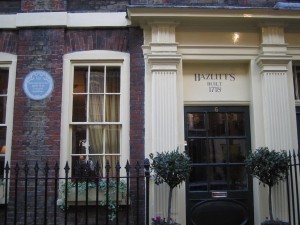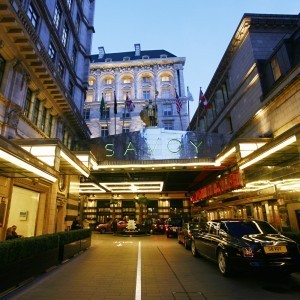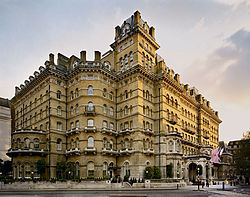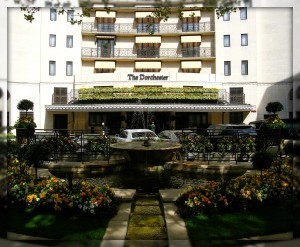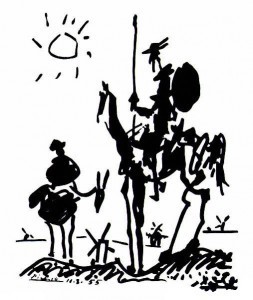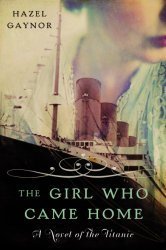Hannah Fielding's Blog, page 88
March 13, 2015
Does age matter when it comes to writing?
 The media has been all aflutter this week over comments made by the best-selling author Joanna Trollope at the Emirates Airline Festival of Literature in Dubai. In her speech she gave the opinion that writers create their best works after the age of thirty-five, when life has ‘knocked them about a bit’, and advised younger writers to be in no hurry to seek publication. She said: ‘in order to write good fiction, I think you need to have got a lot of living under your belt… And that includes the pain as well as the joy.’
The media has been all aflutter this week over comments made by the best-selling author Joanna Trollope at the Emirates Airline Festival of Literature in Dubai. In her speech she gave the opinion that writers create their best works after the age of thirty-five, when life has ‘knocked them about a bit’, and advised younger writers to be in no hurry to seek publication. She said: ‘in order to write good fiction, I think you need to have got a lot of living under your belt… And that includes the pain as well as the joy.’
Some in the media countered Joanna’s opinion by listing great works written by those under the age of thirty-five. ‘The pronouncement may come as a surprise to the likes of Eleanor Catton, who won the Man Booker Prize aged just 28 in 2013 for The Luminaries,’ wrote the arts correspondent for the Telegraph. ‘It could also raise eyebrows among fans of Charles Dickens, who wrote Pickwick Papers when he was 26, William Shakespeare, who is believed to have drafted his first play around the age of 25, and Mary Shelley, who wrote Frankenstein at 20.’ Modern examples perhaps strike more of a chord; writers of the bygone era experienced more earlier in life, because life was immeasurably harder.
Joanna Trollope wasn’t, as some have suggested, dismissing younger writers – and she knows full well there are exceptions to the rule. But generally, I think she makes a good point. Emotion is the backbone of fiction; and to convey emotion that affects the reader sufficiently to draw him or her into the story, one must have experienced the emotion personally. How can you write of joy, lust, longing, love, loss if you have not experienced them deeply? It is experience that builds understanding of these emotions for us all. Those who are writing masterpieces young are perhaps more intuitive or, sadly, have experienced much at a young age. But many writers need those years of learning and living in order to sit down and create a book that really impacts the reader.
I wrote my first novel as a very young woman. I thoroughly enjoyed the process, and I learned plenty along the way. Then I wrote another book, and another book, and another – honing my craft, developing my voice and style. But I did not seek publication for my books until I had more experience; until, in fact, I was nudged to do so by my now grown-up children. When I came to look at the books I had been writing again, with the benefit of more years of experience, I was able to revise and edit them into something undoubtedly better, and I was glad that I had waited.
But that is not to say that younger writers don’t have the right to seek publication. The choice is personal. As Samantha Shannon wrote after discussing the matter on BBC Radio 4 with Joanna Trollope, ‘You don’t need to rush to be published, but it’s worth remembering that you don’t have to wait, either. Quality is defined by the reader, and each of us will have a different view of what makes a writer experienced.’ It’s clear to me that with each book you write, you learn – and so there is something to be said for writing a book and then letting it go, and then writing another and another.
Also in the news this week has been the backlash to an article written by a former creative writing teacher,Ryan Boudinot, for The Stranger magazine in which he openly discusses the issues with students of the craft. One of the serval points of contention is this:‘If you didn’t decide to take writing seriously by the time you were a teenager, you’re probably not going to make it.’ He talks about the need to have been ‘crazy about books as a kid to establish the neural architecture required to write one’. With this in mind, perhaps younger writers can built their craft early enough to publish, say, in their twenties. But Ryan’s closing point speaks volumes:
‘I advise anyone serious about writing books to spend at least a few years keeping it secret. If you’re able to continue writing while embracing the assumption that no one will ever read your work, it will reward you in ways you never imagined.’
What it all comes down to patience, practice and having faith that in a world that gallops at an ever-increasing pace, your moment will come.
March 11, 2015
Literary hotels of London
In my new novel, Indiscretion, the heroine is a writer. So what better place for an intimate lunch between Alexandra and her estranged father than Hazlitt’s, I thought: the eighteenth-century hotel just off Piccadilly that has been a favourite haunt for writers over the years since it was home to William Hazlitt: think antique books and oak paneling and candlelight.
I so enjoyed my visit to Hazlitt’s while researching Indiscretionthat I decided to dig a little deeper and uncover some other hotels of literary interest in the capital: ideal retreats for bookworms, whether for afternoon tea or a glass of wine, or perhaps, if you’re treating yourself, a night away.
The Savoy
The Savoy has a long tradition of hosting literary events, and it was the first luxury hotel to have a writer-in-residence. Geoffrey Chaucer, Henry Fielding, Michael Morpurgo and Fay Weldon have taken up the post, and Stephen Fry was for a time blogger-in-residence.
The Langham
Sit in the lounge of The Langham and you’re surrounded by the ghosts of writers past who once stayed and wrote there: Mark Twain, Oscar Wilde, Winston Churchill, Noel Coward and especially Sir Arthur Conan Doyle, who set Sherlock Holmes stories at the hotel.
The Dorchester
Location for the Foyles Literary Luncheons, which began in 1930, devised by Christina Foyle as a way to connect readers and authors; since then Foyles has held more than 700 luncheons with more than 1,000 authors entertaining almost 500,000 guests! This hotel in Mayfair also serves a wonderful afternoon tea, if you like the occasion.
If a literary break appeals, but remaining within the confines of London does not, take a look at the offering of Brown’s Hotel, London, where Rudyard Kipling wrote The Jungle Book. Brown’s Hotel’s Literary Town and Country Escape has an itinerary taking in London, Devon and Cornwall and some classics of English literature along the way. It’s pitched at people ‘who simply need some time to themselves in the company of a good book’. That’s all of us, then, surely! Sounds heavenly.
Alternatively, would you prefer a hotel break in accommodation inspired by literature? Further afield, you could stay in the Hôtel de Glace, Canada, themed on Jules Verne’s Journey to the Center of the Earth; at the Inn BoonsBoro, Maryland, dedicated to epic romance novels and opened by Nora Roberts; at the Sylvia Beach Hotel, Oregon, where you won’t find a television in your room, only books; the Library Hotel, New York, whose rooms are themed on sections of the the Dewey Decimal system; or the fairytale-themed Maison Moschino, Milan, where you can spend a night in the world of Alice in Wonderland or Little Red Riding Hood. It’s so wonderful to see books paid homage to in this way. ‘More!’ is my cry.
March 9, 2015
Research, research and more research
 In an interview with Judith Spelman for Writing Magazine this month, author Emma Donoghue spoke on the subject of research for fiction-writing, an element of the writing process that she takes very seriously. She said:
In an interview with Judith Spelman for Writing Magazine this month, author Emma Donoghue spoke on the subject of research for fiction-writing, an element of the writing process that she takes very seriously. She said:
If you hope to find any interesting details about the time and place, you have to read more widely than you ever have before. If you are trying to be efficient about it and research just as much as you need, you will do too little. It’s important to do a huge amount of research and throw most of it away.
I wholeheartedly agree (well, except with ‘throw most of it away’ – I always keep my research notes just in case). Whenever I write a new novel, I dedicate at least three months to researching the era and setting in which I am situating the story. If I can, I travel to locations. But certainly I watch films and television programmes, listen to music, look at art and artefacts and read many, many books on many different subjects connected to the place.
For my new novel Indiscretion, for example, I had a wealth of knowledge from my trips to Spain, but I also immersed myself in Spanish culture, even down to serving tapas for supper, and I read widely. I needed to know all about the Spain of the 1950s: everything from fashions to music, courting customs to typical dates, landscapes to weather patterns, bullfighting customs to the culture of the gypsies, wine-making to horse-rearing, native flora and fauna to city architecture. I was especially careful to research the history of the era from a political standpoint: how the country had been shaped by the civil war, the Second World War and the leadership of Franco. And, as always, I took a particular interest in the legends of the land, which say so much about a people.
The trick to researching, I have found, is to willingly follow tangents. As Emma Donoghue explained for the article, ‘I think the mistake a lot of teenagers make today is just to rely on Wikipedia.’ That’s not to say that one may not use Wikipedia, though – only that it is a first stop to open the door to more solid and interesting sources. Take the Alhambra, for example, which features in Indiscretion. Having been there myself, I had a good deal of knowledge in my head, but I needed more: intricate details and hard-and-fast facts. The internet gave a broad overview, but also links to many sources that provide much more depth, from non-fiction explorations to other fictional portrayals, as in Washington Irving’s Tales of the Alhambra (first published in 1832).
For me, what is important in researching is filling your mind with enough information that you can successfully intrigue your reader and transport him or her to the setting. But, as Emma Donoghue suggests, one must discard most of it for the purposes of the fiction, meaning that the author will always know a great deal more about the setting of the story than the reader. That is how it must be, for the background cannot impede the plot. And personally, I find this a very pleasurable element of being a novelist. To have a job that entails finding out so many fascinating details… it’s a delight. It also means I have a head filled with all sorts of knowledge that won’t find its way onto the pages of my novels. And that’s where author blogs come in, of course…
March 6, 2015
Welcome to El Pavón
 In my first novel, Burning Embers, the heroine Coral has inherited a plantation in Kenya. I so loved making her a mistress of a beautiful expanse of land, and describing the setting: an exotic and stunning backdrop for the love story that plays out. In my new novel, Indiscretion, the heroine Alexandra is, like Coral, coming home to the country of her birth which she left long ago, and to the family homestead. But this time she is not mistress; she is a newcomer in a large and colourful family who inhabit a sprawling estate.
In my first novel, Burning Embers, the heroine Coral has inherited a plantation in Kenya. I so loved making her a mistress of a beautiful expanse of land, and describing the setting: an exotic and stunning backdrop for the love story that plays out. In my new novel, Indiscretion, the heroine Alexandra is, like Coral, coming home to the country of her birth which she left long ago, and to the family homestead. But this time she is not mistress; she is a newcomer in a large and colourful family who inhabit a sprawling estate.
El Pavón is at the heart of the story in Indiscretion; it is Alexandra’s home by birth, and the seat of the family’s power and passion. Today I’d like to introduce to you this central setting for the book.
First, a glimpse of the hacienda:
El Pavón was a large, rectangular edifice with three quite distinct storeys, its whitewashed walls splashed here and there with patches of brilliantly coloured purple bougainvillea that crept up to brush the rounded brown tiles of its roof. Its style was neo-classical, the proportions pure: an austere structure.
An imposing seventeenth-century portal, which she later discovered was originally from a convent in Toledo, flanked by double Tuscan columns at the top of three widely fanning steps, led into the vaulted hall. Placed at equal distances from the main entrance, at each end of the long façade, were two identical narrow doors, richly decorated with carvings and marquetry. They opened onto separate wings, the private apartments of members of the family. Together they enclosed an inner shady courtyard. The ground floor rooms at the front of the house each had French windows that opened onto an uncovered terrace which ran the length of the building, punctuated by fragrant miniature orange trees in large terracotta pots. Fronting the house was a wide gravel carriage circle that enclosed a huge round lawn, spread out like an emerald carpet beyond the foot of the main steps. Balconies with wrought-iron consoles and uprights lined the upper two storeys.
The inspiration for the main house came from my visits to Spain, and especially the region of Andalusia. There are many humble adobes there, but also imposing haciendas that dominate the landscape and tell of owners (at least once) noble and powerful.
Of course, no great house is complete without extensive grounds, and around El Pavón there are manicured lawns and landscaped gardens complete with colourful shrubs and flowers, groves of oleander trees where one may happen across a statue or a fountain, and orchards where the air is thick with the scent of lemons, pomegranates and oranges. Of course, business is essential for the De Falla family, and so plenty of land is given over to stables and pastureland for the horses they rear, and vineyards for the wine they produce. The overall estate very much lives up to its namesake, El Pavón, for its grandeur and panache: pavón is the Spanish word for peacock.
The peacock is beautiful, but it is also proud – like the matriarch of El Pavón, Alexandra’s grandmother, and like the gypsies that camp on her land. And, so goes the proverb, pride goes before a fall. That is exactly what has happened to Salvador de Rueda. Once proud, he has fallen as a result of an indiscretion. The question is whether the Spanish honra(honour) and Salvador’s self-pride will allow him to move past his transgression and forge a future with Alexandra, and let him be like that peacock once more: passionate, confident, masterful, proud.
March 4, 2015
My ten best tips for overcoming writer’s block
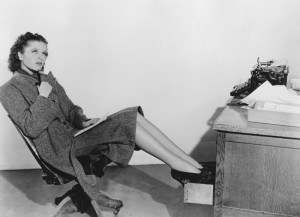 Writer’s block is a strange beast indeed. The writer lives and breathes writing, and has done from an early age. All we want to do is write; it’s what makes us feel most alive, most ourselves, most fulfilled and peaceful inside. And yet some days, the words just won’t come. I can think of nothing more frustrating in oneself than wanting very much to write but not being able to do so. Happily, writer’s block is not a problem that gets me down these days – after so many years of writing, I’ve developed several ways to ensure the block is quickly and easily broken down. Here are my most highly recommended methods to keep those words flowing onto the page:
Writer’s block is a strange beast indeed. The writer lives and breathes writing, and has done from an early age. All we want to do is write; it’s what makes us feel most alive, most ourselves, most fulfilled and peaceful inside. And yet some days, the words just won’t come. I can think of nothing more frustrating in oneself than wanting very much to write but not being able to do so. Happily, writer’s block is not a problem that gets me down these days – after so many years of writing, I’ve developed several ways to ensure the block is quickly and easily broken down. Here are my most highly recommended methods to keep those words flowing onto the page:
Devise a regular, consistent writing routine, and stick to it. For example, I sit down every morning after breakfast and write until lunch. I’m so used to that routine now that the writing is automatic to me – out come the words. No time for excuses or dilly-dallying; like a job, you just get on with what you must do.
Write at the time of day that you feel most creative. The routine you devise needs to fit in with your natural rhythms. Are you a night owl or an early bird? Do the words flood out of you right after you awaken, or are they slow burners that build up over the day? If you’re sitting at your desk trying to write and feeling blocked, always consider the timing. Are you tired? Or, conversely, are you full of restless energy that you need to expel before you can settle into the writing?
Write in the right space for you. Are you trying to write at the kitchen table, while your children clamour for your attention and a teetering pile of washing-up watches you disapprovingly? You need a space in which to write that opens you up creatively, whether that’s a writing room or study, a studio in the garden, a park bench or a corner table in your favourite cafe.
Have a little patience. Dismiss the inner critic who, at the first sign of block, will attempt to induce panic, despair and a general feeling of inadequacy! Keep thinking, keep trying a new sentence. Eventually, the flow will restart. It will – you’re a writer, after all, and you’ve written many, many words in the past.
Retrace your steps to a moment of inspiration. Re-create as closely as you can a time that you were flooded with the desire to write. Perhaps you return to the meadow carpeted with wildflowers where you conceived a love scene; perhaps you cook tapas to recall what inspired you to set your novel in Spain; perhaps you simply sit down, close your eyes and drift into memory.
Get in touch with writer friends. What can be horrid about writer’s block is the isolation and loneliness you feel. When the words are flowing, living the life of a writer is wonderful – you shut yourself away in your own little world, and revel in that. But when the page is blank, you’re just alone. That’s why it’s a great idea to be part of a writers’ network. You can join a local writing group, find a writing buddy or two, or simply do as I do – get involved in online communities. Goodreads has many groups where writers support each other and share ideas. A problem shared is a problem halved, as they say!
7. Consider what may be holding you back emotionally. When you declare that you have writer’s block, that means you want to write, but can’t. Is that really true, though? Be honest with yourself – does every part of you want to write? Often, fear can hold you back from writing. You may fear failure, of writing something that others criticise. You may fear vulnerability and truth, what words will come, what part of your soul will be laid bare. You may even fear success – how writing what is in your heart to write may change your life. It can be all too easy to blame this entity called ‘writer’s block’, when in fact it is you who is holding back. Sixteenth-century poet Philip Sidney put it beautifully: Biting my truant pen, beating myself for spite:/”Fool!” said my muse to me, “look in thy heart, and write.
Give yourself permission to write poorly. Perfectionism is paralysing. If you want the words that flow to be exquisite, the foundation for a literary masterpiece, you’re going to struggle with confidence. You have to just relax and see what happens when you write. So ‘the words’ won’t come. Nevermind! Write other words then – the ‘wrong words’. Tell yourself that no one will read these words, and you can redraft them over and over, so what’s on the page really doesn’t matter. Make your target a word count for this writing session, rather than creating really amazing prose or poetry.
Write something else.Sometimes, writer’s block is a signal that you’re heading down the wrong path, that deep down you’re uncomfortable with the direction your work is taking. In that case, taking a break from the work is the best approach. Put away the work you’ve been labouring over – for a day, if you’re on a deadline, or longer if you’re not – and write something else, something fun, to remind you of the joy of writing, to build your confidence and to limber up those writing muscles, so to speak. Try a different kind of writing to your usual style – prose if you’re a poet; stream of consciousness if you’re a novelist. Sometimes, when I try this, I find entirely new inspiration, and when I go back to my main work I’m really excited to be writing again.
Be comforted by the fact that all writers struggle sometimes.Here are some inspirational quotes from literary greats. I have some of these written down and pinned up in my study:
What I try to do is write. I may write for two weeks ‘the cat sat on the mat, that is that, not a rat.’ And it might be just the most boring and awful stuff. But I try. When I’m writing, I write. And then it’s as if the muse is convinced that I’m serious and says, ‘Okay. Okay. I’ll come.’ – Maya Angelou
I learned to produce whether I wanted to or not. It would be easy to say oh, I have writer’s block, oh, I have to wait for my muse. I don’t. Chain that muse to your desk and get the job done.– Barbara Kingsolver
Being a real writer means being able to do the work on a bad day.– Norman Mailer
The secret to getting ahead is getting started.– Mark Twain.
If I waited till I felt like writing, I’d never write at all.– Anne Tyler
Don’t get it right, just get it written.– James Thurber
The one ironclad rule is that I have to try. I have to walk into my writing room and pick up my pen every weekday morning.– Anne Tyler
Get it down. Take chances. It may be bad, but it’s the only way you can do anything really good.– William Faulkner
Ever tried. Ever failed. No matter. Try again. Fail again. Fail better.– Samuel Beckett
If I waited for perfection, I would never write a word.– Margaret Atwood
Do you have any tips you’d add to this list? If so, please feel free to comment.
March 2, 2015
Favourite writer: Miguel de Cervantes
 Too much sanity may be madness and the maddest of all, to see life as it is and not as it should be. –Miguel de Cervantes
Too much sanity may be madness and the maddest of all, to see life as it is and not as it should be. –Miguel de Cervantes
I was in my teens when I first began reading classic world literature, and when it came to Spanish literature, top of the list was Don Quixote by Cervantes. I recall very much enjoying the book back in those days, but then, recently, I rediscovered it while writing my forthcoming novel. Indiscretion is set in Spain, and so – as I always do when writing a new novel – I immersed myself in Spanish culture, past and present, to get into the mood for writing. I thoroughly enjoyed re-reading Don Quixote, and I thought today I would share with you something of that seminal work, and the man who wrote it.
A life of experience
Cervantes was born Miguel de Cervantes Saavedra in a town outside Madrid in 1547, son of a philandering barber-surgeon and a once-noblewoman who was sold into matrimony. As a young man, he worked as a chamber assistant of a cardinal in Rome and then in the Spanish navy. He was a brave soldier and was shot three times in battle, twice in the chest and once in the left arm, which was rendered useless (he later said he ‘had lost the movement of the left hand for the glory of the right’, for he wrote right-handed). Captured by Algerian corsairs, he spent five years as a slave and struggling to escape before being released when his parents paid his ransom, whereupon he returned to Madrid and worked as a purchasing agent for the Spanish Armada, and later as a tax collector, before landing in prison for inaccurate accounting. He died in 1616, and was buried in an unmarked grave at a convent – an initiative has now been launched to trace his remains and give them a more honourable memorial.
Don Quixote
Clearly, Cervantes had lived a life full of varied, colourful and sometimes painful experiences – perfect fodder for a writer’s imagination. He published his first novel, La Galatea, a romance, in 1585, and wrote plays that were produced for Madrid’s theatres. But it wasn’t until he published the first part of Don Quixotein 1605 that he saw any acclaim for his work. He released the second part the year before his death.
Don Quixoteis about an old man who is so taken with stories of brave knights of yesteryear that he sets out in search of adventure. So convinced does he become by his own fantasies that he manages to persuade a peasant, Sancho Panza, to be his squire. What ensues is a riot of adventures blending reality with fantasy until, finally, Don Quixote falls back down to earth with a bump.
Literature professors regard Cervantes’ magnum opus as the first modern European novel and one of the best works of fiction in history. Fyodor Dostoyevsky, one of my favourite authors, called it ‘the ultimate and most sublime work of human thinking’. What made the book so groundbreaking and wildly popular was a new style that Cervantes pioneered,favouring clear language and natural dialogue over literary pretension. It’s a very funny book, satirising the romance of chivalry, but among the wit is a great deal of wisdom. Axioms such of these are from Don Quixote:
The proof of the pudding is in the eating.
Who walks much and reads much, knows much and sees much.
He who plays with cats must expect to get scratched.
The Cervantes legacy
Cervantes’ work created waves of change in the Spanish language, so much so it’s been termed since ‘the language of Cervantes’. But during his lifetime Don Quixote was not widely known, and he was certainly not rich from his writing. His work was all but forgotten until, in the 18th century, English and German scholars began re-examining Don Quixote. Not until the 20th century, though, did Cervantes’ reputation build to the point that his book had been translated into all major languages and published in 700 editions, and was the commonly known work we celebrate today.
If you haven’t read the book, I highly recommend it for your ‘to read’ list. I will leave you with the famous depiction of Don Quixote and Sancho Panchez by Pablo Picasso, 1955. Such humour!
February 27, 2015
The Girl Who Came Home by Hazel Gaynor
From the blurb:
Inspired by true events, the New York Times bestselling novel The Girl Who Came Home is the poignant story of a group of Irish emigrants aboard RMS Titanic—a seamless blend of fact and fiction that explores the tragedy’s impact and its lasting repercussions on survivors and their descendants.
Ireland, 1912. Fourteen members of a small village set sail on RMS Titanic, hoping to find a better life in America. For seventeen-year-old Maggie Murphy, the journey is bittersweet. Though her future lies in an unknown new place, her heart remains in Ireland with Séamus, the sweetheart she left behind. When disaster strikes, Maggie is one of the lucky few passengers in steerage who survives. Waking up alone in a New York hospital, she vows never to speak of the terror and panic of that terrible night ever again.
Chicago, 1982. Adrift after the death of her father, Grace Butler struggles to decide what comes next. When her Great Nana Maggie shares the painful secret she harbored for almost a lifetime about the Titanic, the revelation gives Grace new direction—and leads her and Maggie to unexpected reunions with those they thought lost long ago.
A very poignant, moving, beautifully written book that had me utterly gripped.
The author has clearly researched the historical content carefully, and she strikes just the right balance between (often terrible) fact and fiction. I especially enjoyed her depictions of the class differences on the ship, and the descriptions of the ship itself, which really brought that world to life in my imagination.
The two timelines – in 1912 and in 1982 – are interwoven perfectly, enough to keep you intrigued by each. In 1912, I warmed to all of the Irish characters, but read with such a heavy heart, knowing so many of these girls with such hopes and dreams and fire in their hearts would not make it to America. I was concerned before reading the book that I may find the sinking of the Titanic scenes too painful to read (I struggle with the movie Titanic), but while I was very moved by the writing, I did not feel overwhelmed and in danger of having nightmares.
The 1982 narrative following Maggie and her great-granddaughter Grace is just as compelling as the past one. I found myself really rooting for Grace, a young woman weighed down by responsibilities and grief. I could picture her so vividly thanks to the author’s fantastically descriptive writing; ‘It was a warm day, full of blossoms on the trees and bees buzzing among the early-blooming azalea bushes’ – just exquisite.
I love the relationship between Maggie and Grace, and how Grace is able to see her great-grandmother as a young woman. How many elderly people do we know without really knowing them at all? All of her life Maggie has been a treasured member of the family, but the truth of her past, of what happened to her on Titanic, has been buried. There’s such a sense of poignancy and liberation in the book as she finally tells her tale, and it is so transformative for both Maggie and Grace.
Most of all, it was the romance in the book that swept me away. I don’t wish to provide any spoilers here, so I will simply say that if you are a romantic you must read the book. The ending is sheer perfection.
Overall, I found this to be a very well written and engaging book, with a story that will stay with you long after you read the final words on the page. Inspirational and beautiful.
The Girl Who Came Homeis available now from Amazon; click on the book cover below to visit the store.
February 25, 2015
Author: The most coveted job
 When you were a child, what did you want to be when you grew up? I imagine you changed your mind fairly often, as you discovered the world around and fell in and out of love with aspects of it, but perhaps one desire was deep-rooted and pervaded through the years. For me, the dream of being a writer began very early: I was inspired by my grandmother, a published writer; I was immersed in books and reading thanks to my parents; and I had a governess, Zula, who was an amazing storyteller. Perhaps at times I toyed with the idea of being an actress or a ballerina, but I always returned to the writing dream.
When you were a child, what did you want to be when you grew up? I imagine you changed your mind fairly often, as you discovered the world around and fell in and out of love with aspects of it, but perhaps one desire was deep-rooted and pervaded through the years. For me, the dream of being a writer began very early: I was inspired by my grandmother, a published writer; I was immersed in books and reading thanks to my parents; and I had a governess, Zula, who was an amazing storyteller. Perhaps at times I toyed with the idea of being an actress or a ballerina, but I always returned to the writing dream.
Still, it was many years into adulthood before I realised that dream and became a full-time writer. I think for many of us the cherished childhood dream can fall by the wayside in a tough world where we must prioritise responsibility over passion and do what must be done to support the family. But we hold on to the dream, still, and it is what sustains us through the harder times.
Many dreams are hard to realise unless you do so quickly. If you want to be a professional sports player, for example, you need to follow that dream through childhood and adolescence; you can’t realise the dream later in life. But the beauty of the arts is that you can pick them up and develop your talent at any time in your life. This is especially the case with writing, in which having plenty of life experience can be a very positive attribute.
A recent survey of almost 15,000 British people by YouGov found that ‘author’ is the most desired job in the country. It was also the least unwanted job for respondents.
I wonder what it is that attracts people to the job? Certainly, it’s not financial reward: a survey carried out by Digital Book World found that nearly a third of published authors make less than $500 (£350) a year from their writing.
In fact, I think three aspects of being an author appeal:
The prestige: Whenever someone asks me what I do for a living, and I reply that I am an author, his or her eyes invariably light up with interest, and respect. We do tend to respect creatives – those who put work into a creative endeavour. And writers over the years have been highly respected for their words and their wisdom, and their ability to create conversations and even sometimes change (just think of Harriet Beecher Stowe, whose book Uncle Tom’s Cabin is agreed by historians to have contributed to the outbreak of the American Civil War for the anti-slavery sentiment it stirred).
The legacy. To write is to record a part of yourself for posterity. When you write, you leave a legacy for those you leave behind. As we age, that becomes a powerful driver. Writing is the passport to immortality, in a sense.
The quiet life. Interestingly, second in the YouGov poll of most desired job was librarian (54%) and third was academic (51%). Writer, librarian and academic: what do these jobs have in common? A peaceful working environment! It seems that many people crave a quieter working life – the ability to withdraw from the hustle and bustle, and to have some peace and quiet. That says an awful lot about the evolution of the work industry.
The survey also found that women are 7% more likely to want to be an author than men, and 20% more likely to want to be a librarian. This is suggestive, perhaps, that women are more overwhelmed in the noisy, busy world of work, and seeking a role in which their work is meaningful and appreciated.
Having read about this survey, I feel more privileged than ever that I am an author. But then I did not fall into this job: I worked very hard to build it for myself. I wonder how many of respondents know the reality of being an author today, and how many have a picture in mind of the author of yesteryear, who was more ‘artiste’ than businessperson. I wonder how many see being an author as a wonderfully calm, romantic way to be. Certainly, there are times when that is the reality – but it is also a very demanding job, physically, emotionally and mentally, and requires a good deal of courage, commitment and faith. Still, it is very rewarding.
If we follow the results of this survey to their natural conclusion, then Britain is a nation dreaming of creating books, reading and caring for books, and studying. That is something to be very proud of indeed, and makes me glad that I chose long ago to make England my home.
February 23, 2015
The UK’s ‘Most Romantic’ Awards
 Regular readers of my blog and my books will know this fundamental truth about me: I’m an ardent romantic. I very much wish that was something everyone could say about themselves. Don’t you think the world would be a warmer, sweeter, kinder, more beautiful place if we were all romantics?
Regular readers of my blog and my books will know this fundamental truth about me: I’m an ardent romantic. I very much wish that was something everyone could say about themselves. Don’t you think the world would be a warmer, sweeter, kinder, more beautiful place if we were all romantics?
With that wish in mind, what a wonderful initiative it is to reward those who foster a sense of romanticism. That’s what world-renowned romance book publisher Mills & Boon has set out to do, with its new award scheme, Mills & Boon Romantics.
According to the publisher, the awards aim to ‘celebrate the UK’s most romantic things’ and to ‘recognise and honour the businesses, services, people and moments that make us all go weak at the knees’. There are 12 categories for the awards:
Most romantic restaurant or bar
Most romantic UK destination
Most romantic wedding venue
Most romantic UK venue
Most romantic hero/heroine
Most romantic UK experience/activity
Most romantic gift
Most romantic view
Blogger’s award
Romantic entrepreneur award
Most romantic classics
Mills & Boon author’s award
The most romantic hero/heroine award is particularly exciting – anyone can nominate a loved one to receive the award. What better way to say ‘I love you’? I also love the romantic view category, so much so that I just nominated my favourite view – from the white cliffs of Dover near my home.
Mills & Boon marketing manager Joanna Kite said: ‘Gone are the days of the single red rose, being romantic is big business, from starlit roof top cinemas to magical creative proposal agencies, romantic gestures are getting a lot more imaginative. We wanted to use our knowledge and expertise in this sector to establish The Romantics Awards to celebrate just that.’
Anyone can nominate their ‘most romantics’. To enter, you simply go tohttp://romanceawards.millsandboon.co.uk/. A panel of will choose the winner for each category,to be announced on April 29th. The winners in each category receive a winner’s logo and promotion in the winners’ directory for a year, and the overall winner will feature in a Mills & Boon book in 2016.
I love the idea of these awards. Wouldn’t it be wonderful to see a greater movement toward rewarding romanticism in our culture? I do think that there’s too much cynicism in the modern era. Take the phrases ‘incurable romantic’ and ‘hopeless romantic’, for example. They are commonly used labels to describe oneself, or another. But why should one want to be ‘cured’ of romance? Why should one be ‘hopelessly’ incapable of curbing romanticism? What would life be without romance?
If you’re interested in an answer to that question, I recommend Lauren Oliver’s Delirium series, which explores a dystopia in which love is viewed as deliria, a disease to be ‘cured’ by a horrendous surgical procedure on the brain in the teenage years. I found Lauren’s descriptions of adults incapable of romantic attachment deeply thought-provoking, but also disturbing!
What do you think? Should we be looking for ways to ‘spread the love’ in our societies? Should organisations and government better support the romance genre? Did the Beatles have it right when they sang, ‘All you need is love?’ I would love to hear your thoughts.
February 20, 2015
The Hall of the Abencerrages
One of my favourite places on earth is the Alhambra, the amalgamation of fabulous Arabesque palaces and a fortress complex built by the Moors on a steep wooded hill during the mid-14th century in Granada, Spain. It’s straight out of the Arabian Nights, and is startling for its beauty and its impact on the imagination.
Nowhere else did the Moors create such decorative art and such exuberant splendour: centuries of craft, design and technique delicately carved in stone, marble, plaster and wood, with gushing fountains and canals, a glorification of a long-distant past. Here, within these silent walls, where the shadows and echoes of the past confront one at every step, where the ghosts of emirs, slaves and beautiful princesses move through the corridors with silent footsteps; here in this wonderful and mystery-laden atmosphere dwells romance.
The palace features in my new novel, Indiscretion.The heroine, Alexandra, spends several weeks in Granada and takes the time to explore every part of the Alhambra. I intend to run a series of posts on this beautiful setting, which is so rich with history and legend, and to start off today I’m focusing on the stunning Hall of the Abencerrages.
The room is a perfect square and rises to a high dome, which is decorated in blue, brown, red and gold in the mocárabe style – an ornamental design that originated in the 12th century and incorporates prisms that resemble stalactites. When I visited this room, I couldn’t take my eyes off the vaulted ceiling. Here’s a view of it:
The Hall of the Abencerrages is undeniably beautiful. But I also felt a chill as I stood in it, because of the legend associated with the room.
The Abencerrages were a prominent noble family who lived in Granada in the 15th century. Legend tells that the head of the family, Amet, fell in love with the Sultan’s favourite concubine, Zoraya. One night, he was climbing into her window when he was spotted. The Sultan was furious, and intent on vengeance. But he was not hot-headed; he was cunning. Sultan Abu Al-Hassan invited thirty-six members of the Abencerrage family to a banquet in the hall. There, he had them massacred until the fountains ran with their blood.
A ghoulish legend, it is true, which makes it a little unsettling that a man who covets Alexandra’s heart, the torero Don Felipe, tells it to her. When she shudders at the horror of it, his response is this: ‘What man wouldn’t go to extreme lengths to protect what is his?’ This is just one perspective on love, passion and death in the Spain of the era in which the book is set (1950s). Is it one that Alexandra will respect and admire? Or will she find brutality associated with such possessive love repugnant? Will such details of her Spanish heritage root her in the country of her birth, or send her fleeing for England once more?


